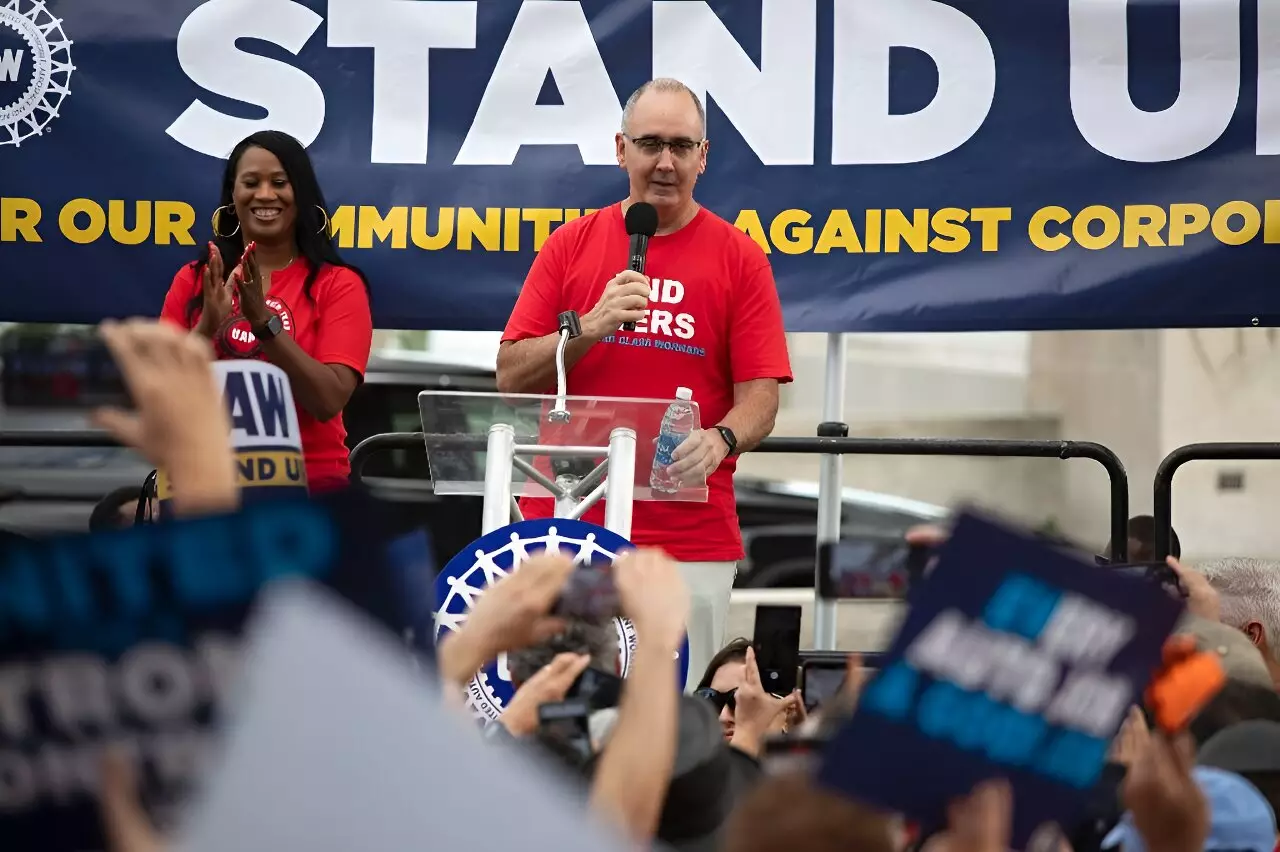The rejection of the union drive at Mercedes-Benz’s Alabama facilities marks a significant setback to the United Auto Workers’ ambitious campaign to organize the American South. The preliminary tally released by the National Labor Relations Board revealed that 2,642 workers voted against unionization, while 2,045 were in favor, resulting in a margin of 56 to 44 percent. This outcome was particularly disappointing for UAW President Shawn Fain, who had hoped for a second victory following the successful unionization at Volkswagen in Tennessee earlier this year.
The election at Mercedes-Benz US International (MBUSI) was met with strong opposition not only from the company itself but also from state and local officials who raised concerns about potential job losses and the impact on the local economy. Alabama’s Republican Governor Kay Ivey, in a statement, emphasized the distinction between Alabama and Michigan, making it clear that the state was not receptive to the UAW’s presence. Fain expressed his disappointment in the election results and criticized Mercedes for what he deemed as “egregious and illegal behavior” during the campaign. Despite the setback, Fain affirmed the UAW’s determination to continue its efforts to organize in the South.
Following the results of the vote, Mercedes issued a statement thanking employees for making their voices heard on the issue of unionization. The company expressed its commitment to working directly with its team members to ensure that MBUSI remains an employer of choice and a place that employees would recommend to others. However, union backers raised concerns about the company’s anti-union communications and filed unfair labor complaints with the National Labor Relations Board and German officials alleging violations of supply chain practices.
Economics professor Stephen Silvia pointed out the differences between Volkswagen’s and Mercedes’ approach to the unionization drive, highlighting Mercedes’ full-out anti-union campaign. Silvia emphasized the effectiveness of anti-union efforts in influencing the outcome of such campaigns. While the UAW’s success at Volkswagen had raised hopes for additional drives in the South at plants operated by other automakers like Honda, Toyota, and BMW, the rejection at Mercedes underscores the challenges faced by organized labor in the American South.
Despite the setback at Mercedes, the UAW remains determined to pursue additional campaigns in the South. The union’s recent strike at Detroit automakers resulted in significant wage hikes and increased visibility for UAW President Shawn Fain. The union has gained momentum, with the support of President Joe Biden, following the successful strike. However, the resistance from southern politicians who view unionization as a threat to the region’s economic success continues to pose challenges for organized labor in the American South.
The rejection of the union drive at Mercedes-Benz’s Alabama facilities serves as a reminder of the formidable obstacles faced by organized labor in the region. While the UAW remains committed to its goals of unionizing auto manufacturing plants in the South, the outcome of the vote at MBUSI underscores the need for a strategic and persistent approach to overcome opposition from companies, politicians, and other entities.


Leave a Reply